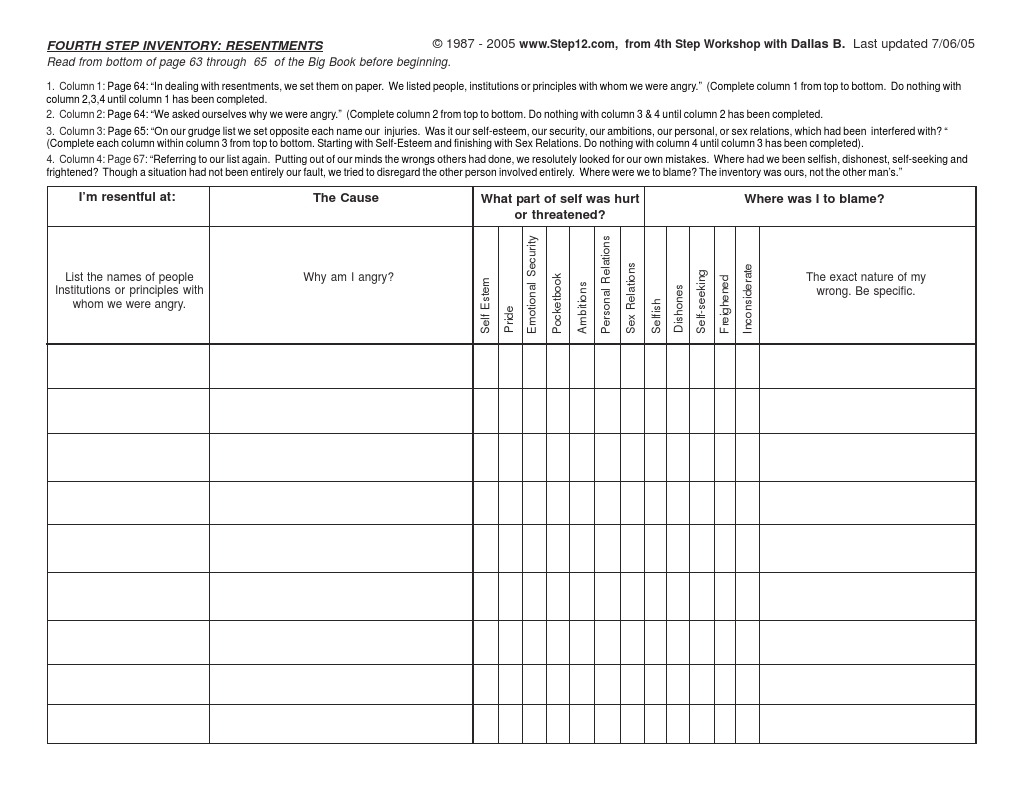Alcoholics Anonymous (AA) is a well-known organization that helps individuals struggling with alcohol addiction. One of the key components of the AA program is the 12-step process, which includes self-reflection and taking responsibility for one’s actions. The 4th step of the AA program involves making a searching and fearless moral inventory of oneself.
Completing the 4th step worksheet is a crucial part of the recovery process for individuals in AA. This worksheet helps individuals take a deep look at their past behaviors, relationships, and actions that may have contributed to their addiction. It allows individuals to identify patterns and triggers that may be causing them to turn to alcohol.
When filling out the 4th step worksheet, individuals are encouraged to be honest and thorough in their self-reflection. This process can be challenging and emotional, but it is necessary for growth and healing. By examining past actions and behaviors, individuals can start to understand the root causes of their addiction and begin the process of making amends.
One of the key aspects of the 4th step worksheet is identifying character defects or shortcomings that may have led to addictive behaviors. By recognizing these flaws, individuals can work on improving themselves and changing negative patterns. This step also involves identifying individuals who may have been harmed by the individual’s actions and making a plan to make amends.
Overall, the 4th step worksheet is a powerful tool for individuals in AA to take accountability for their actions and begin the process of healing. By completing this step, individuals can gain a deeper understanding of themselves and their addiction, paving the way for a successful recovery and a healthier, happier life.
In conclusion, the Alcoholics Anonymous 4th step worksheet is a crucial part of the recovery process for individuals struggling with alcohol addiction. By completing this worksheet, individuals can take a deep look at their past behaviors and relationships, identify character defects, and begin the process of making amends. This step is challenging but essential for growth and healing in the journey to sobriety.
